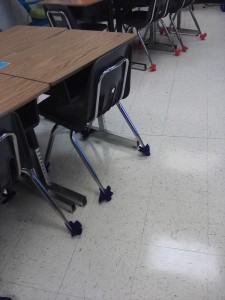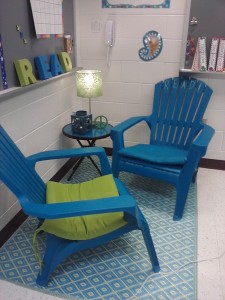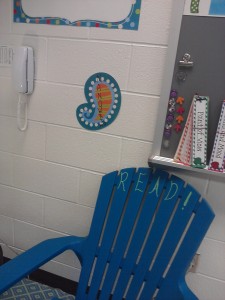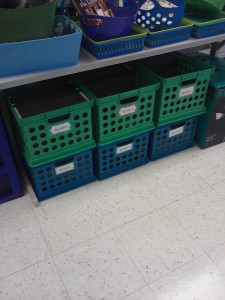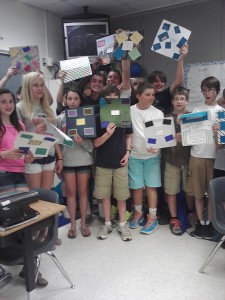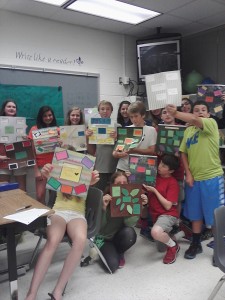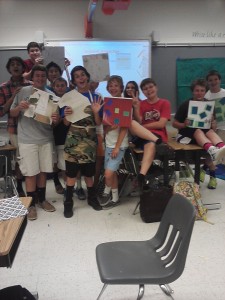I had a terrible week. An uncle that I loved dearly passed away. Grades were due. I had 120 memoirs to read and grade. My team members were grumpy and out of sorts (including me!). The computer wasn’t working so e-mails and screen projections for lessons were a struggle. None of the lessons seemed to come together like I had envisioned them…then Friday afternoon, last block, was upon me.
I will be forever grateful that this is a team taught class because it enabled my wonderful co-teacher, Teresa, to experience the wonder with me. Since the lesson plan wasn’t really working anyway, I decided we’d throw it out and just have a read-around. We put the chairs in a circle, gave everyone their completed memoirs back and went over a few pointers:
You may read all, part, or one golden line from your memoir.
You will listen to the author and record beautiful words, or examples of figurative language, or a place where he/she made you feel something and write down your compliments on a sticky note.
When the author is done reading, pass the sticky notes to him/her so that when he/she gets discouraged about writing later on (which we all will) he/she can pull these out and feel encouraged.
Do not write, “I liked it. It was good.” unless you give specific examples for both!
And so we began. Jason wrote about getting his pet rabbit from an ‘old prospecty-type guy’ and we all laughed. Katie described why she loved going to the beach so much ‘I am completely happy there.‘ and we nodded in agreement. Some kids were too shy to read themselves and asked other people to do it for them. That was OK – it was the writing that mattered anyway. Matt wrote a story he thought was about his love of music but was really a love letter to his Dad. Casey described a terrible trip when she was ignored by family and friends and nearly drowned in a wave pool. We were all incensed on her behalf.
Then Ellie read her story about her cousin, Jack. When Teresa and I read it, we thought she had mistakenly stapled two unrelated stories together, the first and second page were so different. But when she read it, it made complete sense. She began with a happy memory of her cousin and her at camp, then she quoted a beautiful hymn, and ended with the news of Jack’s death and her reaction to it. She made it almost all the way through before she broke down and had to leave the room. She wanted me to finish it for her and I tried my best. When done, it was silent except for the sounds of sniffling. Then one of the kids said, “That was a big brave!” He was right. When Ellie returned to class she was inundated with high fives, hugs, and pats on the back. They knew what it took to read that piece aloud and they wanted her to know they were grateful that she did.
Having already read the memoirs, I tried to balance the sad with the happy. Adam, completely red, wrote about kissing a girl (on a dare) on a trip to Ireland. We loved it. Jax wrote about driving a car for the first time at age 6 and when he finished, everyone shouted, “That was SO you, Jax!” The same voice was in A.J.’s piece where he wrote about a basketball game so thrillingly that I now feel as if I know what that feels like and I haven’t set foot on a basketball court outside of gym class since…well, ever! My favorite line from his story was his reaction to a ball hog on his team, ‘Wait – when did Coach hire Kobe Bryant?’ That is SO Adam!
Michael read his story about a Halloween night when he hid in a tree, dressed head to toe in black, to scare little kids. He was pretty sure the 5 year old he scared first has not been trick or treating since that night. We were all secretly pleased that it ended with the tree branch breaking, and him falling to the ground. (It seemed like karma to many of us.) Michael’s story prompted a story from Connor, who has not volunteered to say one word since school started but went on for several minutes about a similar experience.
Then it was Rebekah’s turn. She wrote about her ‘Granny’ s death from cancer. She balanced the sad with the happy so beautifully that she made it almost all the way to the end. Then she collapsed in tears and Teresa read the ending for her. When she finished, the kids spontaneously stood up, applauding and cheering for Rebekah’s ‘big brave’. As I turned back from delivering the last memoir, I saw A.J. with his arm over his eyes. The all boy athlete was crying, too.
Kaivon read last. His was a story of a poetry recitation he did in 5th grade. I was his teacher then, too, and I was there when he recited. He captured the experience perfectly.
Our class became a family that day. We laughed, cried, comforted, and praised each other. It was wonderful. As I tell the kids all the time,
‘Writing can make your life better.’
On Friday, it did.

 The only rule is ‘Keep writing!’ I try, not always successfully, to have time for Author’s Chair at the end of class where those that want feedback can share all or part of their writing and receive specific compliments as well as suggestions for improvement. I think this time goes a long way in creating community and building authentic audience. It’s hard to share your writing, especially if you write about things that really matter. But again, all it takes is one. One brave soul to risk laying bare something hard, or painful, or joyful, so that we feel it, too. Then we become connected in a way unique to a reading/writing classroom. If we can feel what the writer feels, we enter their life. We become a part of each other then. That’s when the real writing can begin. I tell my students that writing what matters to you will make your life better.
The only rule is ‘Keep writing!’ I try, not always successfully, to have time for Author’s Chair at the end of class where those that want feedback can share all or part of their writing and receive specific compliments as well as suggestions for improvement. I think this time goes a long way in creating community and building authentic audience. It’s hard to share your writing, especially if you write about things that really matter. But again, all it takes is one. One brave soul to risk laying bare something hard, or painful, or joyful, so that we feel it, too. Then we become connected in a way unique to a reading/writing classroom. If we can feel what the writer feels, we enter their life. We become a part of each other then. That’s when the real writing can begin. I tell my students that writing what matters to you will make your life better.
